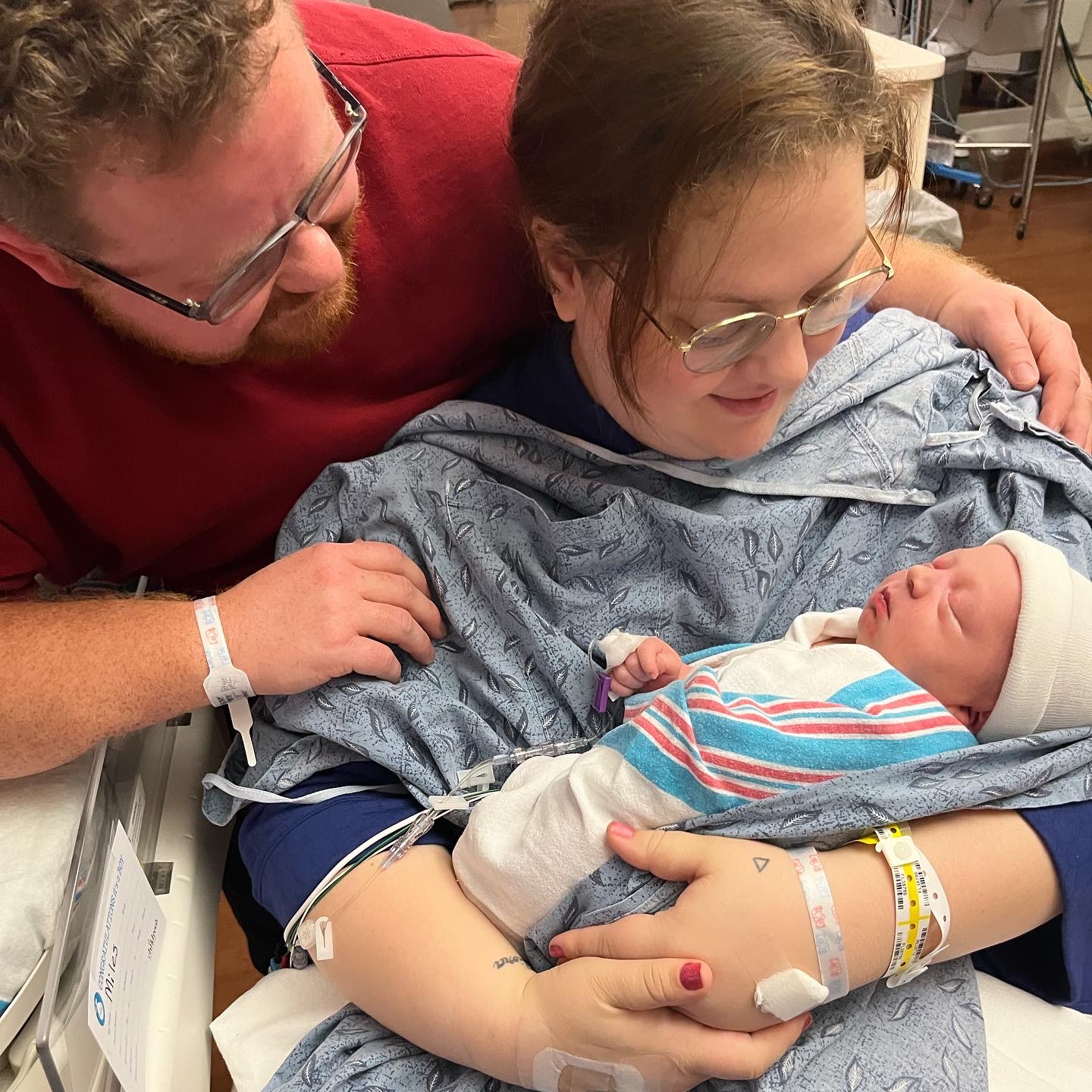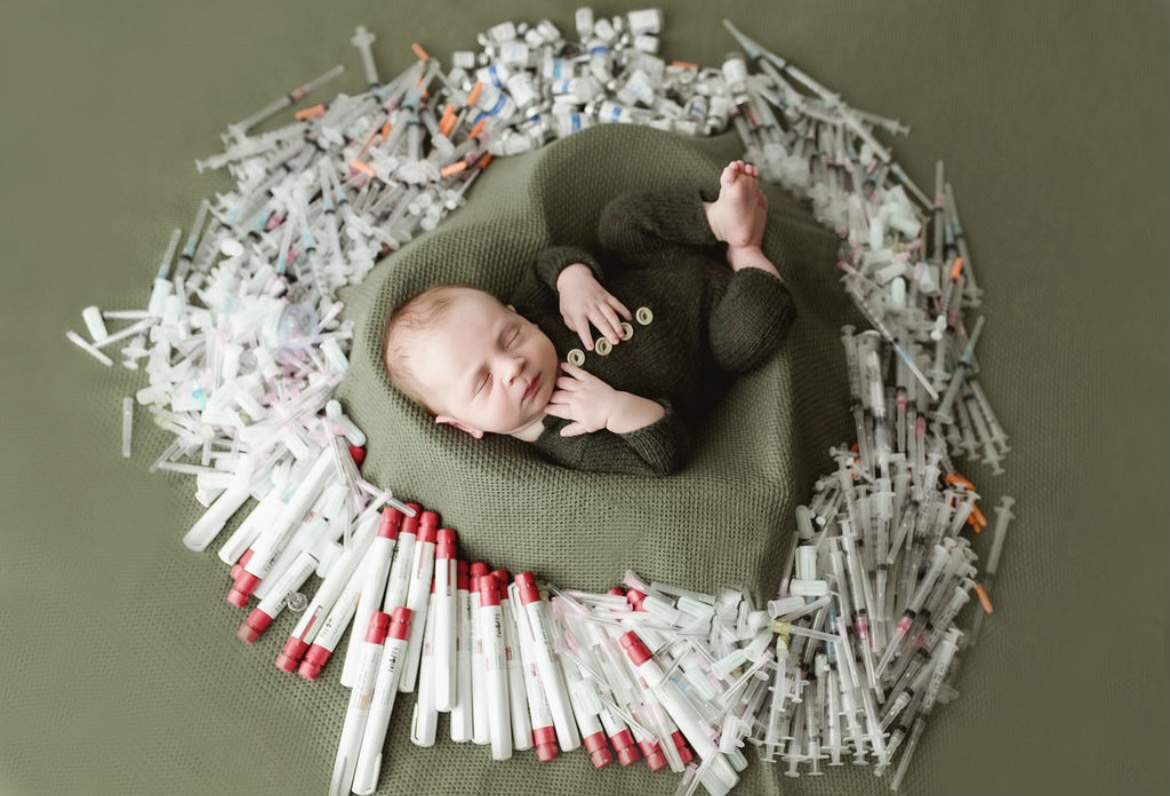Misdiagnosis, pregnancy loss and the power of an infertility second opinion helped this transgender couple have a family

Kirby and Hunter, high school sweethearts, knew their dream of parenthood would need assistance. Kirby’s irregular menstrual cycles from a young age signaled potential fertility challenges and Hunter’s identity as a trans male signaled that they’d likely have a more upward road to conception. Still, the couple were resolute and happy to seek out a nearby fertility clinic for support.
“At first undergoing treatment was exciting,” Kirby says. “I always thought that since something was wrong with me, that I couldn’t even try.”
Unfortunately, Kirby’s first fertility clinic experience was far from successful. Their initial journey began with a different fertility clinic, where they encountered challenges and two years of what Kirby described as “non-treatment or terrible treatment.” While she had suspected fertility issues due to her painful and irregular periods, the clinic diagnosed her with PCOS (polycystic ovary syndrome) without further investigation.
This misdiagnosis set the stage for two years of frustration and disappointment. They pursued in vitro fertilization (IVF) and, after four failed transfers, her final transfer implanted and she got pregnant with twins – only to miscarry 10 weeks later and hemorrhage from the needed dilation and curettage (D&C) procedure.
“I knew something was wrong from the start. We found out they were mono mono twins,” Kirby says of her fetuses sharing the same placenta. “But I then had to switch from feeling the pregnancy loss to survival mode [from blood loss].”
The couple turned their grief into resolve, thinking the rare complications of the first pregnancy were a fluke. They returned to their original clinic for treatment only for continued issues due to the misdiagnosis of PCOS.
The experience left Kirby feeling defeated, like infertility had become part of her identity.
However, their journey took a positive turn when a friend referred Kirby to Dr. Jessica Scotchie at Tennessee Reproductive Medicine (TRM) for an infertility second opinion.
The breaking point and seeking an infertility second opinion
“I should have gone years before,” Kirby says. “I [told myself], If she doesn’t say anything that is different, we’re just done. I was just sick of going through the pain and all of the treatments and everything I had to go through.”
The contrast between the first clinic and TRM was stark. “The first thing when I walked into her office, she looked at me and said, ‘You need help.’ And I knew that right then, she was there to advocate for me,” Kirby adds. “And our conversation was just wonderful. She looked at my numbers and my extensive history from the last clinic. She took days to read it.”
Switching to TRM marked a significant shift in their experience, as they found the team attentive and knowledgeable. “The second thing she did was take the blood loss that I had at the D&C extremely seriously and referred me out to a hematologist immediately, which I also very much appreciated,” says Kirby.
Dr. Scotchie also recommended further testing, which ultimately uncovered the earlier misdiagnosis of PCOS. Kirby, in fact, had endometriosis.
Endometriosis involves the growth of uterine tissue outside the uterus, causing symptoms like infertility and increased pain during periods or intercourse for many. This condition can interfere with the normal process of ovulation, fertilization and implantation of the embryo.

A diagnosis of hope and resolve
While infertility could have posed a challenge to the couple’s relationship, it instead made them stronger. The couple’s shared history of trauma and early relationship challenges fortified their bond. However, Kirby candidly addresses the unique challenges fertility treatments introduced to their relationship.
“Fertility almost became a third person in our relationship,” she notes. The external stressors, compounded by the emotional toll of fertility treatments, required a delicate balance in communication and mutual understanding.
Related Reading: Coping with infertility with honest communication
Undergoing fertility treatment at TRM, the couple successfully became pregnant. After all their trials, Kirby offers some advice for others going through similar experiences. She emphasizes the importance of doing thorough research, trusting one’s instincts and seeking an infertility second opinion if necessary. She also encourages couples to communicate openly with each other, acknowledging that each person may grieve and cope differently.
Baby update
“Felix was born on 12/5/23 weighing 9 lbs., 3 ozs. and was 22 inches long! We are beyond overjoyed to have him here with us finally and are so in love.” – Kirby
